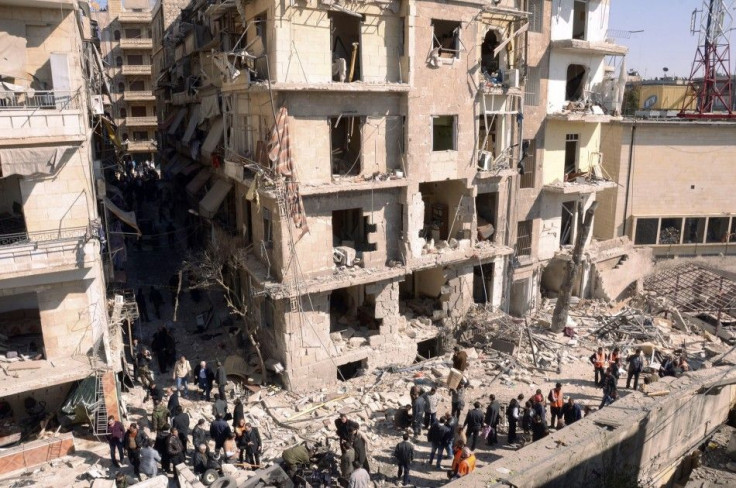Syria: Regime Forces Move Into Aleppo With Heavy Weaponry As 200,000 Flee

About 200,000 people have fled Syria's largest city of Aleppo over the last few days, according to a statement from U.N. humanitarian chief Valeria Amos. Meanwhile, violence there is ongoing, with many residents still stuck inside the city and facing dwindling access to basic staples.
"Many people have sought temporary shelter in schools and other public buildings in safer areas," said the statement. "They urgently need food, mattresses and blankets, hygiene supplies and drinking water."
The increasing violence has made it difficult for humanitarian crews to reach those in need.
Clashes intensified in Aleppo over the past few days as the Syrian army moved in with heavy weaponry to push back against rebel forces that have lately made gains in the commercial hub, which is home to about 3 million people.
The Syrian regime now claims to have several key neighborhoods in Aleppo under its control, including Salaheddine and Sukhour.
But some rebels have conflicting reports. Aleppo resident Mohammed Saeed told the Associated Press that Salaheddine was not under government control. "They have tanks in [the nearby neighborhood of] Hamdaniya and there is fighting, and there have been random bombardments of Salaheddine," he said.
Syria's popular uprising against President Bashar al-Assad began in March of last year, following the regime's brutal crackdown on protesters across the country. Loosely organized opposition fighters have struggled against Assad's formidable forces for the past 17 months.
Aleppo was relatively stable until rebel forces made substantial gains in the city this month.
"It is not known how many people remain trapped in places where fighting continues today," said Amos.
© Copyright IBTimes 2024. All rights reserved.






















